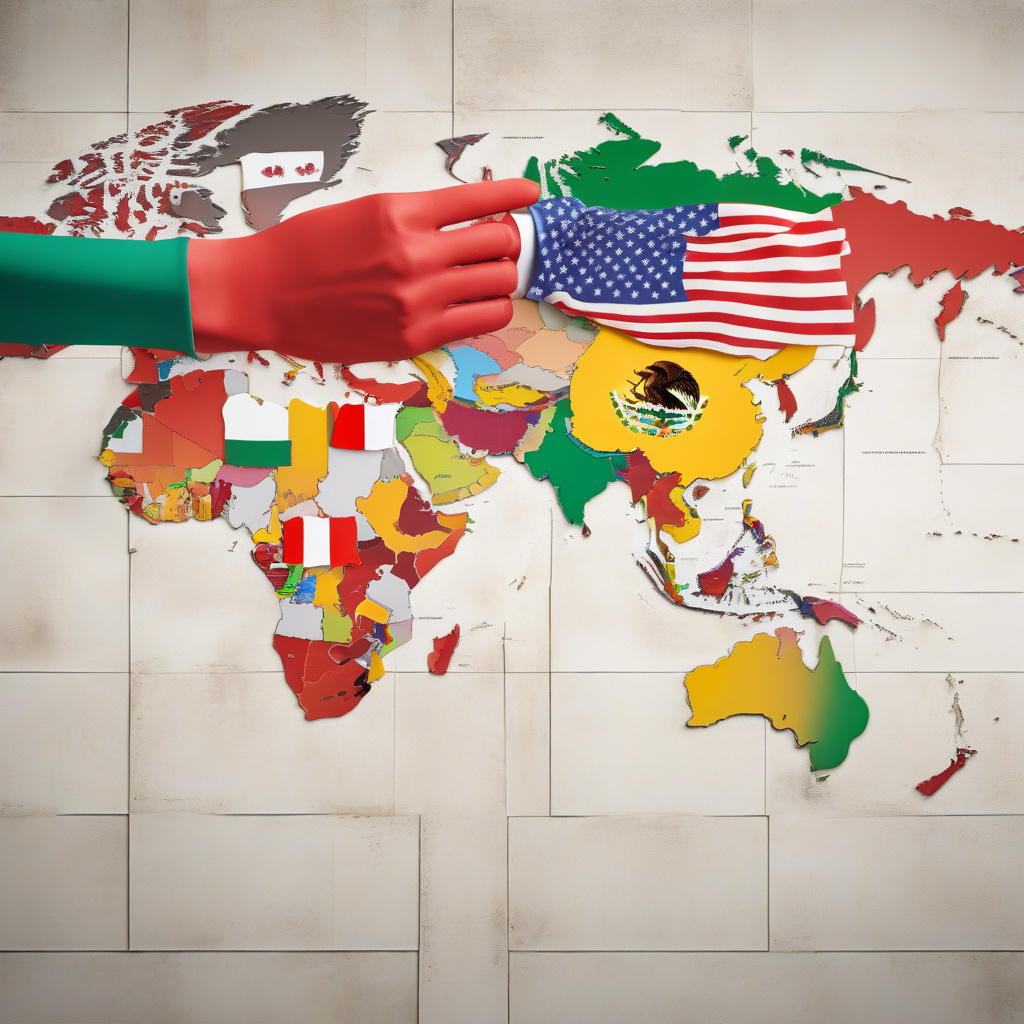Mexico, Canada, and China Respond Firmly to Trump’s Trade Tariffs
President Donald Trump’s recent announcement of new tariffs has sent shockwaves through the global economy, particularly affecting Mexico, Canada, and China. The decision to impose a 25% levy on imports from Mexico and Canada, as well as an additional 10% levy on Chinese goods, has not been well-received by these key trading partners. In response, all three countries have vowed to retaliate, setting the stage for a potential trade war with far-reaching consequences.
Mexico, a significant trading partner of the United States, has expressed its strong opposition to the new tariffs. Mexican officials have emphasized the negative impact these tariffs will have on the economies of both countries, highlighting the deep interdependence of their trade relations. Mexico has announced retaliatory measures, targeting a range of US products including steel, pork, and bourbon. This tit-for-tat escalation could have serious implications for industries on both sides of the border.
Similarly, Canada, another major US trading partner, has condemned the tariffs as unjust and unacceptable. Canadian Prime Minister Justin Trudeau has called the decision “an affront to the longstanding partnership between our two countries.” Canada has announced its own retaliatory measures, imposing tariffs on a variety of US goods such as steel, aluminum, and agricultural products. The escalating tensions between the US and its neighbors threaten to disrupt the integrated North American supply chain and harm businesses on both sides of the border.
Meanwhile, China, which has been locked in a trade dispute with the US for months, has also vowed to retaliate against the new tariffs. The Chinese government has denounced the unilateral actions of the US as protectionist and harmful to the global trading system. China has announced plans to impose tariffs on a wide range of US products, including agricultural goods, automobiles, and seafood. The ongoing trade tensions between the world’s two largest economies have already had a significant impact on global markets, and the latest escalation is likely to exacerbate the situation further.
The repercussions of these trade disputes are not limited to the countries directly involved. Businesses around the world are feeling the effects of the uncertainty and instability created by the escalating tariffs. Supply chains are being disrupted, costs are rising, and investment decisions are being put on hold. The specter of a full-blown trade war looms large, with potentially disastrous consequences for the global economy.
As the situation continues to unfold, it is clear that a multilateral approach to trade is more important than ever. The interconnected nature of the global economy means that actions taken in one country can have far-reaching effects across borders. Dialogue, cooperation, and compromise are essential to resolving trade disputes and ensuring the continued prosperity of nations around the world.
In conclusion, the decision by President Trump to impose new tariffs on Mexico, Canada, and China has sparked a fierce backlash from these key trading partners. The ensuing tit-for-tat retaliation threatens to escalate into a full-blown trade war with serious implications for the global economy. As businesses and governments navigate this uncertain terrain, the need for a collaborative and inclusive approach to trade has never been more urgent.
trade, tariffs, global economy, retaliation, multilateral approach












